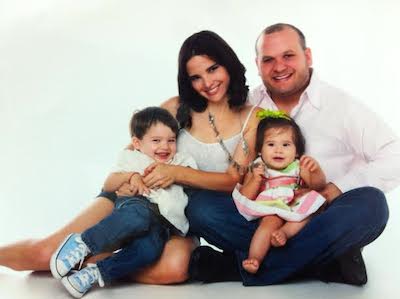YOUR CHILDRENS’ DENTAL HEALTH, WHAT YOU MAY BE WONDERING ABOUT

Our children's dental health represents much of how we value the important of those little "baby teeth". These are actually VERY IMPORTANT in how our children's oral health develops over time. In our practice, I treat children and love to do so! When easily managed, the time spent with them represents a breath of fresh air in the middle of our day. I love to welcome them and look forward to educating them and their families on how to keep those little teeth as healthy and beautiful as we can in preparation for the arrival of those that are coming in their place...what we call the permanent, or adult, teeth. Many of my patients ask me about their children's dental health; I would like to share my answers to some of the most common questions that come my way.
Lets get started!
+ When should I make my child's first dental appointment?
The first dental visit is as much for you as it is for your child. At this visit you will be given valuable information on how to establish a preventive protocol for your child's teeth, including details regarding the diet, hygiene, and preventive measures necessary to keep those teeth shining bright. The American Academy of Pediatric Dentistry recommends the first visit be by your child's first birthday, or 6 months after the first tooth appears in the mouth.
+Why should my child's cavities be fixed?
Cavities are bacteria. When not taken care of these may spread to the nearby dentition or even affect the underlying permanent teeth. Baby teeth serve to maintain space for the erupting permanent teeth. If destroyed by the bacterial decay these teeth may need to be extracted early, causing a loss of space needed for future teeth. This, in turn, may require the use of costly orthodontic treatment to recreate the space necessary for proper eruption of permanent teeth.
+How many times a day should I brush my child's teeth?
The teeth should be brushed at least two times a day, once in the morning and once in the evening before bedtime. Once the baby teeth are completely erupted into the mouth and actually touch each other flossing should be started. I prefer to advise the children to floss their teeth after dinner and before bedtime.
+How often should I bring my children to the dentist for their regular examinations?
Once your child has been examined we will be able to recommend a specific preventive program that suits him, or her, best. Typically, a child should visit the dentist for routine examinations at least twice per year. More frequent visits may be suggested should we need to monitor unusual growth patterns, an increased risk of decay, or to simply make sure their hygiene habits are developing properly. Your child will become more comfortable with his or her dental responsibilities as he or she maintains regular dental visits.
+What should I do about a tooth that is growing behind the baby tooth?
I would recommend you bring the child in for an evaluation. This is normal and happens often. The erupting tooth is typically a permanent tooth trying to squeeze itself through. If the baby tooth it is growing behind is loose then do not do anything. The loosening tooth will fall out on its own. We may need to consider removing that front tooth if it shows no sign of movement after a reasonable period of time.
+Should my children receive flouride? And how much is enough?
No flouride supplements are necessary if your city's water supply contains flouride. Normally, your child is given topical flouride during each of his or her biannual visits. Each of our child patients are assessed individually to determine if he or she requires additional flouride applications.
+What toothpaste should I allow my child to use?
Most over the counter major brands are acceptable as long as they have the American Dental Association seal of approval. Non-flouridated toothpaste is recommended for children under the age of 3 years.
+When will my child lose the first baby tooth?
On average, the first tooth falls out between the ages of 6 and 7 years. The specific time frame is determined by your child's dental age. This may differ from his or her chronological age.
I hope these basic set of questions have made you feel more confident about taking control of your child's oral health. Educating your children, from an early age, on how to properly care for their teeth will motivate them to slowly take responsibility for their own oral health, assuring a future of bright and healthy smiles ahead!
Please contact me at info@ritadarghamdmd.com or at 305 572-1600/305 858-0505 should you have more questions on how to help create beautiful smiles in your little ones!


